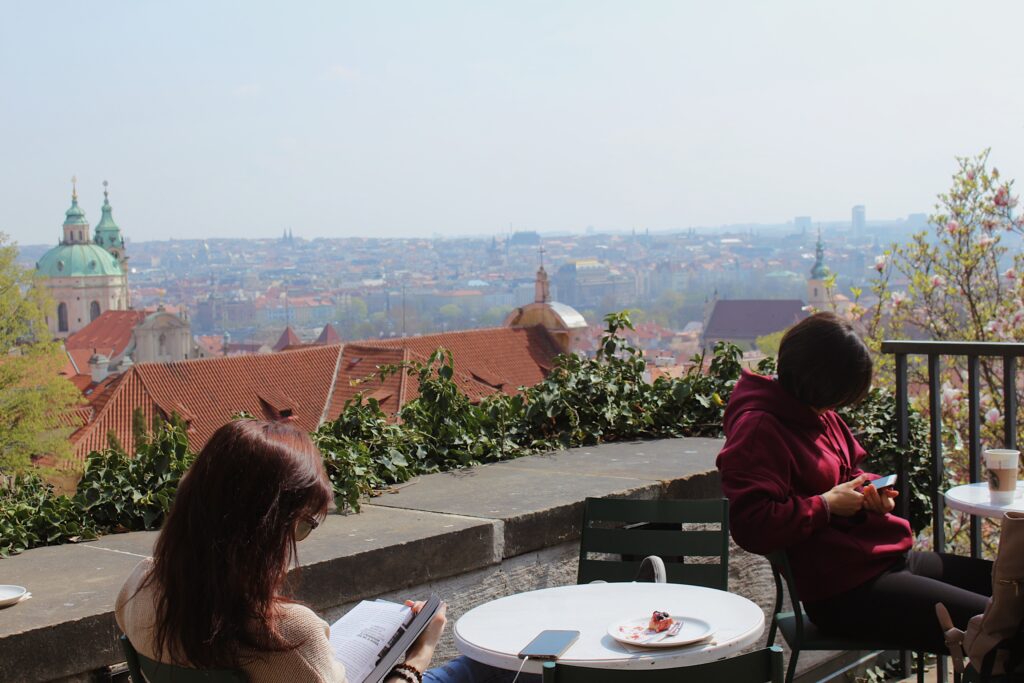I’ve said it before and I’ll say it again: studying abroad changed my life for the better. As you could probably guess, traveling is a really big part of who I am, and my experience studying abroad helped me achieve some of my longest-held travel aspirations within a few months. If you’ve decided to study abroad yourself, here‘s what you can expect and prepare for when you go!
Note: Every university and experience is different but the points I’ve listed are common among those who study abroad. I’m specifically sharing my experiences from studying abroad in Liverpool, England.

The cost of studying abroad
You may be surprised to find that the cost of studying abroad is not too different from the cost of attending your home university. This means you might not have to overextend yourself financially to study abroad. Depending on where you currently attend school, studying abroad may actually be more affordable.
In some cases, the study abroad program you desire may be more expensive, but most schools will offer scholarships. In my case, the program in Liverpool was significantly less expensive than my home university. I ended up receiving more scholarships than I needed, which I was then able to put towards traveling to other countries.
That being said, once you arrive in your new country, it’s very easy to spend an insane amount of money if you’re not careful. In addition to living expenses, you will likely want to try new things and travel to different places. After tuition and my initial travel fees, I aimed to spend less than $2,000 during my 4 months abroad, but this wasn’t very realistic. I sacrificed doing a lot of things that I now wish I had done.

If you are anxious about your finances, I would recommend speaking with your university’s study abroad office about scholarships and possibly opting for a more affordable program or accommodation. You might not study in your dream destination but this doesn’t mean you won’t be able to go there during one of your breaks. Finances are a big deal, so I don’t want to minimize this aspect, but I also don’t want you to write off studying abroad based on finances alone.
Personal travel expenses
The cost of traveling will vary significantly depending on which country you choose to study in and where you hope to go from there. In Europe specifically, round trip flights with budget airlines can be as low as $20! You also have the option of traveling by train, which I definitely recommend doing at least a couple times. I used Trainline and Skyscanner to find the cheapest options (try it out for yourself just to see what kinds of places you could see).
When traveling on a budget, I also recommend staying in hostels. You should always read several reviews before booking a room to make sure it meets your needs and is in a good location, but this option is often more affordable than local hotels or airbnbs. In some cities, the hostels are just as much as the hotels, so do your research beforehand but don’t be afraid to try something different.
Studying abroad is not a vacation
In my post about why you should study abroad I mention getting to travel quite a bit, but it’s important to remember that studying abroad is not the same as going on vacation. You still have classes to attend and assignments to complete if you want to maintain a good GPA. Even if attendance is not mandatory for your classes, you will likely need to attend your lectures and seminars in order to understand how to do well on your assignments. Additionally, you may be taking fewer classes but this does not mean you have a lighter load.

In the UK specifically, most students were taking 2-3 classes per term, whereas in the US I was used to taking 5-6. During my semester abroad, I took 4 classes, which was equivalent to 16 credits at my home university. What would normally be an easy load for me was more challenging because I wasn’t familiar with the topics I was studying or the teaching style they used. It wasn’t necessarily difficult but it did require more effort, so I don’t recommend ignoring the “study” part of studying abroad.
Different education systems
In addition to having homework while you study abroad, the homework you are given will probably be a bit different than what you’re used to. Different countries have different education systems and program structures. One example of this would be the course loads I listed above. Another example would be the teaching style. In the US, I was very familiar with lecture-based classes, but in the UK I attended mostly seminars, in which the class was basically a group discussion.

I can’t speak for every country but I can tell you that if you’re not in the United States, it’s unlikely that you’ll attend classes everyday. When I studied abroad, I took a full load and only had class Wednesday-Friday for most of the spring term. I also submitted the majority of my assignments during the month of March and was exempt from exams as an international student, though the coursework I had was pretty extensive and completely different from anything else I had studied for my degree.
Culture shock and homesickness
Your study abroad experience won’t be perfect. As I said before, every university is different and not every program will help you successfully adapt to your new culture. Even if your study abroad program holds your hand through the entire process, you will likely still have to confront culture shock and even some homesickness while you’re away from home.
Culture shock comes in varying degrees, depending on how different your home culture is from the one you choose to study in. You could have a language barrier, struggle to navigate public transportation, and make very few friends while abroad. You probably won’t even have a roommate. Additionally, you’ll miss out on events happening back home and might not be able to find your favorite meals anywhere. Living in a foreign country can be incredibly lonely.

My purpose in telling you this is not to scare you or turn you away from studying abroad but to give you realistic expectations. When I studied abroad in the UK, I didn’t really struggle with a language barrier or homesickness, but there were quite a few cultural differences. I also went with some of my closest friends, yet I spent a lot of time on my own and also made new friends.
I encourage you to become friends with the other international students studying abroad with you and embrace being alone. In addition, try to understand and appreciate the culture you’re living in. You’re more likely to make friends if you do this rather than acting arrogantly and trying to force your culture on everyone else. You may also find some helpful suggestions in my post about how to feel at home in your new city.
Leaving is really hard
When you study abroad, you might thrive in your new culture and not experience any homesickness. It may actually be some of the best few months of your life. Even if you’re excited to go home, leaving will probably be harder than you expect, because you will now have more than one home. Leaving the place and friends you’ve just formed deep bonds with can be heartbreaking.
You might expect this but I don’t think you can necessarily prepare for that moment. If you’re able to, make plans to return to the country in which you study abroad or at least to see some of your international friends again. Sometimes plans get delayed or rescheduled, but having an idea of when you’ll be able to see your friends or favorite place again is comforting after saying goodbye.
Returning home is really hard
Even if you don’t have the best experience abroad, coming home will probably be difficult. You’ll be happy to see your room and your family and friends, but it will all feel different for you. It may even feel foreign. You will not be the same person you were when you left to study abroad.
“It’s a funny thing about coming home. Looks the same, smells the same, feels the same. You realize what has changed is you.”
F. Scott Fitzgerald
There’s something about authentically experiencing another culture that changes you for the better. At the same time, nobody else will really care that you had this life-changing experience abroad. Life will go on as usual while you go through culture shock and feel misunderstood.
As much as I was ready to eat my favorite comfort foods, go to my church, and have my own vehicle again, all of these things felt really strange for several months after getting home. In addition, I felt like other people were getting annoyed every time I talked about it, which threatened my excitement and made it difficult to process everything.

If you experience something similar when you return home, try to find other students who have studied abroad or are currently studying abroad and get connected with other people who love to travel. When I returned to my home university that fall, I became friends with someone who had previously studied abroad in Scotland. After learning about my time in Liverpool, she turned to me and asked, with genuine interest and concern, “How are you?” I felt seen and understood for the first time in months.
All of this being said, you shouldn’t hold back or hesitate from studying abroad. If you have the opportunity, DO IT. If you’ve already studied abroad, what’s something you wish you knew before you went?
